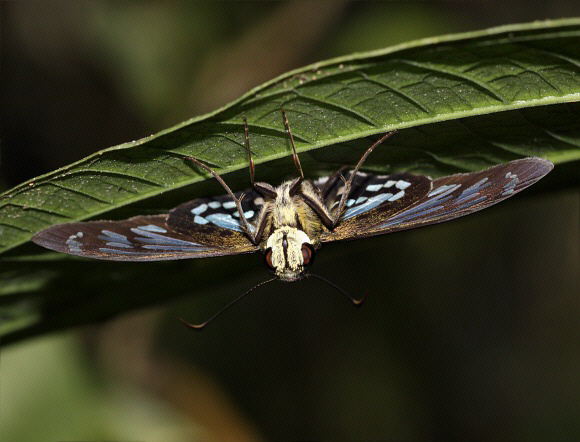
Introduction
The subfamily Pyrginae are characterised by their habit of basking with wings outspread, compared to the half-open position favoured by the Hesperiinae.
The tribe Eudamini includes 44 genera in the Americas, amongst which are the Long-tailed Skippers Urbanus, Chioides and Aguna; and other familiar genera including Phocides, Autochton, Astraptes and Calaenorrhinus.
The genus Phanus comprises of 9 very similar species with dark brown wings heavily patterned with transparent streaks and spots.
Phanus vitreus is a widespread but uncommon species, found from Mexico to southern Brazil.
Habitats
This butterfly is found in lowland rainforest at altitudes between about 100-800m.
Lifecycle
During the early instars the larva is pale translucent yellowish-green, with a brown head. When fully grown it is reddish brown with an olive-brown head. The foodplants are the trees Inga and Swartzia ( Fabaceae ).
Adult behaviour
Males spend most of the time hiding or perching underneath leaves, from which they frequently dart out at high speed to intercept and investigate other butterflies. After each foray they usually return to their original perch. They follow army ant processions across the forest, feeding on the droppings of the ant-birds, which themselves feed on insects disturbed by the ants. The skippers can be baited by using bird-dropping substitutes e.g. small pieces of white tissue moistened with saline solution.
Female Phanus are most often encountered when nectaring at flowers in forest clearings.
